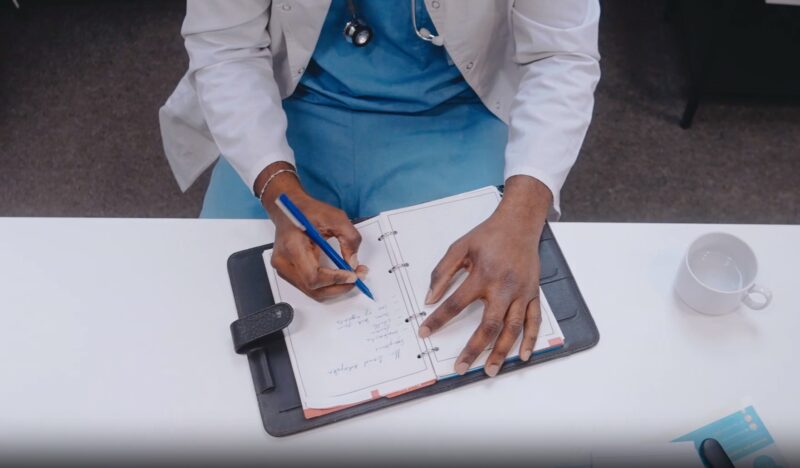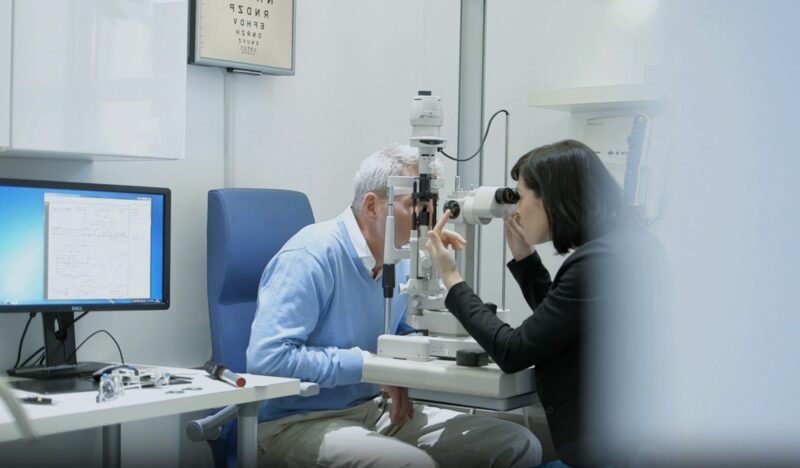It is not always easy to find a good ophthalmologist, especially if you are in a new environment where you don’t know people.
Searching on the Internet can make you feel like finding a needle in a haystack.
But don’t panic!
We’ve got you covered with a fun, engaging, and informative guide to help you make the right choice.
After all, your eyes deserve the best care possible.
5. Postgraduate Qualifications for Your Peace

In this field, education is crucial.
An ophthalmologist should have a postgraduate qualification in ophthalmology and should generally be a senior residency or fellowship in their area of sub-specialization.
They also should be well-qualified to examine, diagnose, and perform eye surgery to treat serious eye conditions.
4. Referrals, reviews, and credentials

You deserve world-class care. So asking friends, family, and coworkers for their referrals is a great idea. They will never recommend somebody if had a negative experience.
It is necessary for those who ask others for referrals to ask about the details of why they are referring any particular ophthalmologist.
Looking at their reviews online is also suggested, as this allows potential new patients to understand more about past or current patient experiences.
It is also essential to look at an ophthalmologist’s credentials in order to learn more about their academic and professional qualifications.
3. Experience Matters (a lot!)
When it comes to your precious peepers, you want an ophthalmologist who’s been around the block a few times.
Look for a doctor with extensive experience treating conditions similar to yours. As they say, practice makes perfect, and you want someone who’s practically mastered the art of eye care.
Always ask friends to give you suggestions and recommendations for the right options. They will never recommend somebody if had a negative experience.
“My goal is to provide compassionate, individualized care to each patient. I believe that a strong doctor-patient relationship is the foundation for excellent care” – Dr. Kendall E. Donaldson, a cornea specialist and associate professor at the Bascom Palmer Eye Institute.
2. Communication Style for Your Comfort
Building a Relationship with Your Eye Doc: After your initial appointment, take a moment to reflect on how well the ophthalmologist listened and addressed your concerns.
You plan for sure to ask plenty of questions and carefully observe how they respond.
A good rapport with your eye doctor is essential, as you’ll want to feel comfortable asking questions and discussing any issues that arise.
“I believe that patient education is the most important aspect of glaucoma care. Patients who understand their disease are more likely to follow their treatment plan and have better outcomes” – Dr. Andrew Iwach, a glaucoma specialist at the Glaucoma Center of San Francisco
1. Waiting period
Patients may not have time to wait for many hours just to see an eye doctor. Long waiting times may cause patients to put off getting their eyes checked until later.
It helps to find out what hours the eye doctor is open or if one needs to work around their set schedule.
Patients should also inquire as to the level of patient traffic at the eye center, as well as whether or not appointments may be scheduled in advance.
The inquiries might help one decide on an eye doctor.
“Many eye diseases, if detected early, can be treated so that blindness is prevented” – Dr. Anne Coleman, a professor of ophthalmology at the UCLA Stein Eye Institute
Ophthalmologist vs optometrist
An Ophthalmologist is an eye surgeon. An Ophthalmologist is a doctor who has completed medical school, plus an internship in a hospital and has then gone on to complete specialist medical training in eye surgery and eye diseases.
Optometrists provide services that include vision examinations and the diagnosis of problems with vision or eye diseases.
They prescribe glasses, contact lenses, and some eye medications.
What about the ones who can’t afford it?
What about all the people who can’t even get to a hospital? The ones who can’t afford that help and can not get their eyes fixed? If you cant afford hospital care for eye problems in the US, there are several options.
Community health centers, which are federally-funded clinics, provide primary healthcare services, including eye care, to underserved populations regardless of their ability to pay.
Some eye clinics offer sliding scale fees, adjusting the cost of care based on a patient’s income.
The American Academy of Ophthalmology’s EyeCare America program offers free or low-cost eye care to eligible seniors and those at increased risk for eye disease.
Additionally, the American Optometric Association’s Vision USA program provides free eye care to uninsured, low-income individuals and their families.
Participating in clinical trials for eye conditions may grant access to free or low-cost treatments while contributing to medical research.
Low-income individuals and families might qualify for Medicaid or the Children’s Health Insurance Program (CHIP), both of which cover eye care services.
Lastly, non-profit organizations like Lions Clubs International offer assistance with eye care and eyeglasses for those in need.
It’s crucial to find the best solution for these specific situations.
Summary
When you need to select the right ophthalmologist, it’s important to consider their qualifications, experience, and communication skills.
Ask your friends, family, and coworkers for suggestions, and read online reviews to learn more about their reputation.
Remember that ophthalmologists and optometrists have different roles, so pick the one that suits your needs.
Pay attention to how much you wait for when choosing an eye care provider.
If hospital care costs are a concern, you can find affordable options such as community health centers and special programs to help you out.
Related Posts:
- How to Choose a Healthcare Field That Actually Pays…
- How to Choose the Right Healthcare Career Path - 17…
- Top 10 Online PhD in Nursing Programs: 2024 Reviews
- 10 Factors Affecting Job Market Trends In Healthcare…
- 7 Best Creams for Hemorrhoid Relief - 2024 Recommendations
- Massage vs Chiropractic - Making the Right Choice















